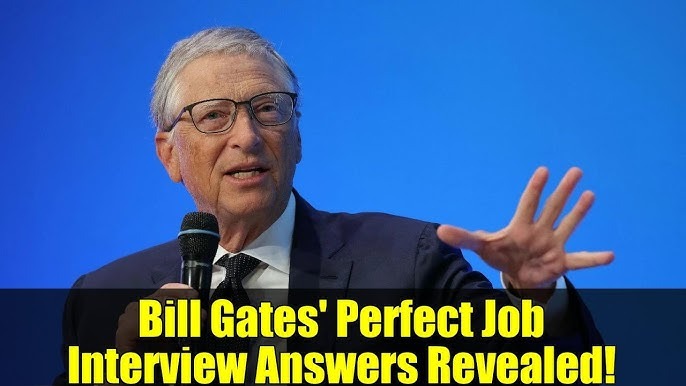In a world where job interviews often feel like verbal obstacle courses, one question continues to stump even the most prepared candidates: What are your salary expectations? Microsoft co-founder Bill Gates recently offered a refreshingly strategic take on this classic query, turning a moment of potential awkwardness into an opportunity to showcase long-term thinking, confidence, and alignment with company vision.
Here’s a deep dive into Gates’ approach and why it’s resonating across hiring circles.
1. The Setup: A Mock Interview with Real Lessons
- In a role-playing exercise during NBA star Stephen Curry’s YouTube series, Gates stepped into the shoes of a young college dropout applying for his first job at Microsoft
- The mock interview, though playful in tone, tackled serious questions including strengths, weaknesses, and salary expectations
- Gates’ responses, especially to the salary question, have since gone viral for their clarity, humility, and strategic brilliance
2. The Salary Question: Gates’ Game-Changing Answer
- Instead of naming a specific figure, Gates redirected the conversation toward stock options and long-term value
- He expressed a preference for equity over cash, saying he hoped the option package would be strong and that he could take risks based on the company’s future potential
- Gates emphasized fairness and trust, noting that while other companies might offer more cash, he valued being treated well and having a stake in the company’s success
- This approach signals belief in the company’s trajectory and a willingness to grow with it, rather than simply extract short-term compensation
3. Why This Answer Works
- It demonstrates strategic thinking: Gates aligns his compensation with the company’s performance, showing he’s invested in mutual success
- It avoids the trap of undervaluing oneself or pricing too high, which can alienate recruiters
- It reflects confidence and ambition, positioning the candidate as someone who sees beyond the paycheck
- It invites transparency and sets the tone for a collaborative negotiation, rather than a transactional one
4. The Broader Philosophy: Leadership Through Ownership
- Gates’ response mirrors his own journey at Microsoft, where his wealth was built not on salary but on equity
- By prioritizing stock options, he reinforces the idea that true leadership involves taking risks and believing in the mission
- His answer also aligns with modern startup culture, where founders and early employees often accept lower salaries in exchange for equity and long-term upside
5. Bonus Insights: Strengths, Weaknesses, and Self-Awareness
- Gates admitted he’s not a natural at sales or marketing, preferring roles focused on product creation and design
- He highlighted his passion for coding and his ability to work well in teams, even if he occasionally critiques others’ code too harshly
- This blend of honesty and self-awareness adds depth to his interview persona, showing that confidence doesn’t require perfection
6. Takeaways for Job Seekers
- Don’t rush to name a number—use the salary question to express your values and vision
- Consider equity if you believe in the company’s future, and be open to risk if the reward aligns
- Show that you’re thinking beyond the role and toward the company’s long-term success
- Be honest about your strengths and weaknesses, and frame them in a way that supports your fit for the role
Sources: Times of India, News18, India Today, Business Insider

